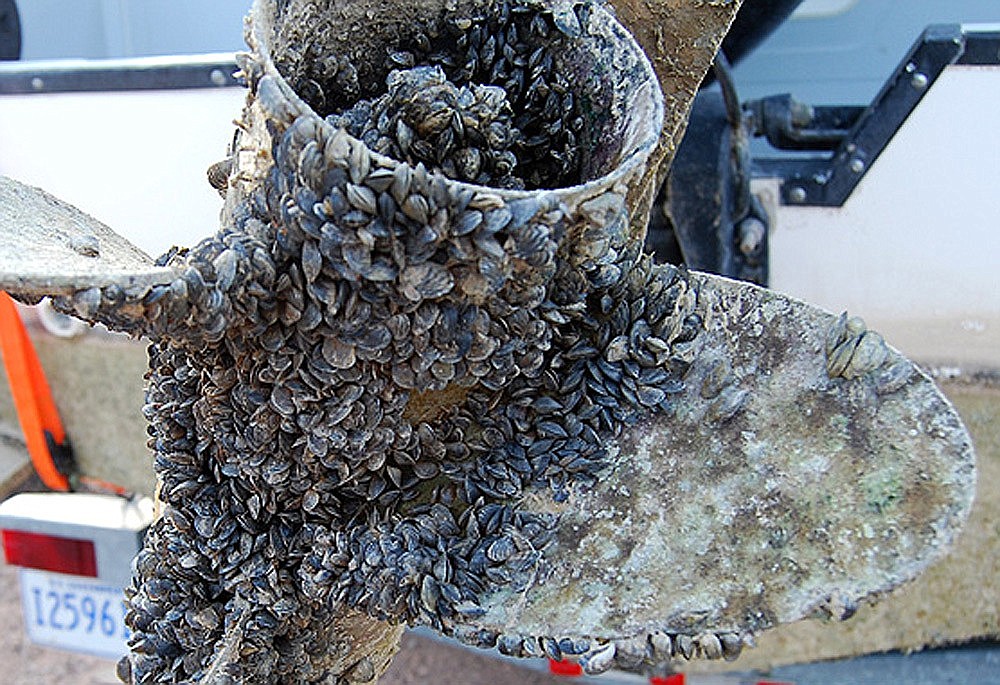No AIS detected by inspectors in northwest Montana
So far this year, Montana Fish, Wildlife and Parks and its partners have inspected nearly 92,000 watercraft for aquatic invasive species.
Of those, 46 were mussel-fouled and more than 400 were found with aquatic weeds.
FWP and partner agencies, which include tribes, counties and conservation districts, operate more than 17 road-side watercraft inspection stations across the state.
Inspectors at the Troy Rest Area station have been particularly busy while performing about 5,522 watercraft inspections. That’s fifth in the state. Of those, 306 were termed high-risk boats, those which were last launched in states with aquatic invasive species.
Clearwater Junction is first with more than 23,356 checks.
Thompson Falls has checked 4,105 boats, 137 in the high-risk category. The total is seventh in Montana. Eureka has checked 1,706 boats, with 601 termed high risk. The total is 15th in the state.
St. Regis checked 3,476 watercraft of which 176 were termed high risk. Kalispell inspectors checked 507 boats, 89 of which were designated high risk.
No AIS mussel-fouled boats were found at Troy,
Dillon had the most mussel-fouled boats with 14. It had inspected 9,010 watercraft. Anaconda had 12 while Wibaux had 10 and Broadus had five. Clearwater Junction, Hardin, Highway 12 in Helena, Sula each had one.
In the last few weeks, the following was detected:
A ski boat recently purchased in Minnesota was intercepted with mussels at the Wibaux watercraft inspection station (operated by Garfield Conservation District). The boat was decontaminated, locked to the trailer and released to its final destination in Pend Oreille, Idaho. Idaho was notified to allow for follow-up.
The Wibaux station intercepted a wakeboard boat that was recently purchased in Minnesota with mussels in the sea strainer. The boat was decontaminated, locked to the trailer and authorities at Lake Tahoe, its destination, were notified for follow-up.
The Broadus inspection station (managed by the Powder River Conservation District) intercepted a recently purchased mussel fouled ski boat from Minnesota heading for Big Sky. Staff decontaminated the boat, locked it to the trailer and FWP staff followed up with the owner for a full decontamination.
As the boating season winds down, inspection stations will be closing. The St. Xavier and Sula stations are now closed. Other stations will be closing in the coming weeks.
AIS are introduced accidentally or intentionally outside of their native range. AIS populations can reproduce quickly and spread rapidly because there are no natural predators or competitors to keep them in check.
AIS can displace native species, clog waterways, impact irrigation and power systems, degrade ecosystems, threaten recreational fishing opportunities, and can cause wildlife and public health problems.

